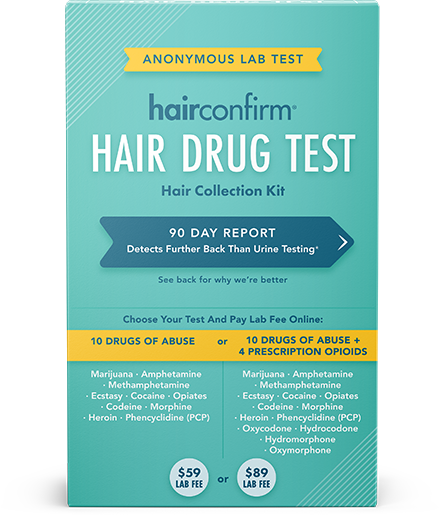Talking to your children about drug abuse may not be easy, but it need not be difficult, either. By taking a diplomatic and empathetic approach, and talking with your children rather than at them, you can have a constructive dialogue about the dangers of drug abuse that will get your kids thinking for themselves about why they shouldn’t risk taking drugs.
It is imperative that children stay away from drugs, as their brains are still developing and this makes them susceptible to the harmful side effects of drugs and potential addiction even more so than adults.
As Drs. Sharon Levy and Siva Sundaram from Harvard Medical School point out, the goal for parents should always be to clearly communicate that complete abstinence from drugs is the best decision for health. However, parents must also accept that they simply cannot control every aspect of a child’s life.
There is no one correct way to talk to children about drugs. However, by following these guidelines, you can make the conversation you have with your children a fruitful one.
- Avoid vagueness.
Because people interpret things differently, you should avoid vague language and be absolutely clear about what you mean. When you say something like “Use common sense,” you might interpret that to mean avoid taking drugs. However, your child might interpret that as “It’s okay to try them, just do a little bit.”
It would be better to say something like: “I don’t mind you hanging out with your friends, but I would appreciate it if you did not do any drugs if they offer them to you.” Make it clear to them what you want them to do.
- Eschew lecturing in favor of a conversation.
While it may be tempting to try and impart your hard-earned wisdom to your teenager by simply telling them what you’ve learned, this will make for a one-way conversation and turn it into a monologue instead of a dialogue, or, worse yet, a lecture.
There is nothing teens hate more than being lectured on a subject. They already feel like they are not listened to, so merely talking at them will likely just make them defensive. Instead, try asking them questions and listening to their answers, and also soliciting their opinions. This will also help you gauge how much they already know about drugs.
For example, ask something like: “So, what have you heard already about Molly?” or “Do you agree that marijuana is less dangerous because it is natural and it’s legal in some places?”
Also, be prepared to learn from your children. If they make a claim about a drug that you believe is false, research it together using reputable sources so you can both be sure what is correct.
- If you discover your child has used drugs, explore the reasons why.
You may find out that your child has already tried one or more types of drugs. If so, try to ascertain why they’ve tried them. It could be that they did them to fit in socially with friends, or maybe they are dealing with stress that you are unaware of, like being bullied, for example. By exploring why your teen has done drugs, you may help them come to terms with other underlying issues that may require professional help.
Also note that reasons like “I just wanted to try them” or “I just thought they’d be fun” are also legitimate reasons. Children are curious and just wanting to do something for the sake of doing it is perfectly normal. In this case, you can ask them about their experiences and if the drug was what they expected and if they were planning to try it again.
- Know when it is time to take action.
While you may not need to intervene with your child if they have only tried drugs once or twice, there may be a time when you have to step in. The Boston Children’s Hospital has a resource page for parents that talks about signs and symptoms of drug abuse in teens that can help you ascertain if your child has a problem with drugs.
If you do have reason to believe that your child may be on their way to having a substance abuse issue, you will want to get a professional assessment. You can start with the child’s doctor, who can recommend a specialist to talk with.
What action you take will depend on how serious the substance use has become. You may have to try and set some boundaries with your child, difficult as that may be. One thing that you can try is to have a “no drugs” contract with your child. Having them put their commitment to stay away from drugs into writing can help solidify that pledge.
 One way to definitively tell if your child is abstaining from drugs is to perform hair drug testing by using HairConfirm®, which is a home + lab based test available at your local CVS Pharmacy® . Hair drug tests can detect drug use for up to 90 days back. This means you can know if your child is being honest with you when they say they are not doing drugs. It can also give you a breakdown of any drugs consumed by them. This type of testing is especially valuable if you are helping your child get over an addiction.
One way to definitively tell if your child is abstaining from drugs is to perform hair drug testing by using HairConfirm®, which is a home + lab based test available at your local CVS Pharmacy® . Hair drug tests can detect drug use for up to 90 days back. This means you can know if your child is being honest with you when they say they are not doing drugs. It can also give you a breakdown of any drugs consumed by them. This type of testing is especially valuable if you are helping your child get over an addiction.
- Be aware if there is a family history of addiction.
If there is a history of substance abuse in your family, especially if it’s a first or second degree relative (grandparent, aunt, uncle), your child may be more susceptible to developing substance abuse issues themselves. This is also true if children are exposed to substance abuse in the home. Although you don’t want to vilify the relative in your child’s eyes, you can use that person as a launching point to talk about the dangers of drugs.
Talking to your children about drugs is essential. The media is talking to them, their friends are talking to them and maybe even complete strangers. Yours should be one of the voices they hear.




